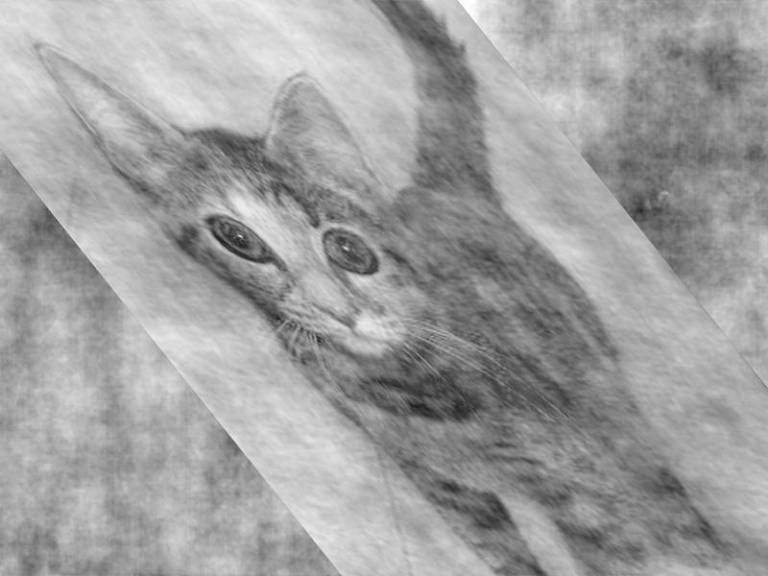'Cats-and-Dogs' test to predict dementia among Parkinson's patients
16 October 2017
UCL researchers have developed a quick and simple test to predict which people with early-stage Parkinson's disease are likely to develop dementia.

Lead researcher Dr Rimona Weil (UCL Institute of Neurology) says that dementia is a serious concern among people with Parkinson's, as the disease can often develop into dementia, but early warning markers are currently lacking.
The research team developed their idea for the test after noticing that many people with Parkinson's say they have trouble reading CAPTCHA images, an online security check using distorted text to tell humans and computers apart.
They derived a test tasking participants to identify whether a distorted image depicts a cat or a dog. In their study of 20 people with Parkinson's and 11 controls, those who struggled with the task also did poorly on more in-depth tests of overall cognitive performance, and had higher scores on a risk measure, previously developed by one of the UCL researchers, that uses cross-sectional data.
The Cats-and-Dogs test was a more sensitive measure than existing visuospatial tests, as well as a control task that made cat and dog images harder to see by adding visual noise. The researchers say the Cats-and-Dogs test is quicker, more sensitive and more specific than other methods that test for the decline in visual processing that precedes dementia.
The researchers have just launched a large, longitudinal study to see how well the Cats-and-Dogs test predicts decline over time, as measured by brain scanning and retinal imaging. They also have an online version of the test for another study that will help them compare the measure to other genetic factors.
The study is published in Movement Disorders and was supported by the National Hospital for Neurosurgery and Neurology, Wellcome, the European Research Council, the Economic and Social Research Council, the National Institute for Health Research, the Academy of Medical Sciences, the Engineering and Physical Sciences Research Council, Parkinson's UK and Alzheimer's Research UK.
To take part in the longitudinal study please contact (within the M25): Dr Louise Leyland at l.leyland [at] ucl.ac.uk
Or (outside London): Alyssa Costantini at a.costantini [at] ucl.ac.uk
Links
- Research paper in Movement Disorders
- Online study of vision and Parkinson's
- Dr Rimona Weil's academic profile
- UCL Institute of Neurology
- Media coverage
Image
- Distorted image of cat. (Source: Dr Rimona Weil)
Media contact
Chris Lane
Tel: +44 (0)20 7679 9222
Email: chris.lane [at] ucl.ac.uk
 Close
Close

